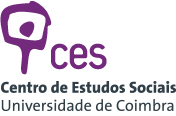CC.EDU - Grupo de Trabalho em Ciência Cidadã e Educação
Comunicação
Exploring methodological approaches for citizen science: sharing experiences from a pilot initiative in the social sciences
Cláudia Pato de Carvalho
Denise Esteves
Joana Sousa
Rita Campos
Vasco Martins
ECSA Conference 2022
Recent innovative experiences bring us to exploring formats for citizen science (CS) research that articulate researchers and different agents from schools, mainly students, teachers, and parent associations in a collaborative effort for participatory research and learning.
In this Conference we will explain our methodological experience with a pilot citizen science project that integrated researchers from the Centre for Social Studies (University of Coimbra, Portugal), and students and teachers from a class at the Jaime Cortesão Secondary School (Coimbra, Portugal).
The motivation for developing the project resulted from the perception of the low visibility, representativeness and intervention of the Social Sciences, Humanities and the Arts in initiatives that promote scientific culture and communication and, even more clearly so, in citizen science projects.
The goal was to promote a critical, inter and transdisciplinary discussion on a social sciences theme from a youth and citizen perspective. From February to May 2022, collaborative research took place in sessions held twice a month and gathered together scientists and citizens, where the latter were active participants in the various stages of the scientific process in the social sciences. The chosen theme was “prejudice in Portuguese society”, and participants researched different expressions of it while using different methodological approaches of the social sciences (interviews, inquiries, documental analysis, social network analysis). It was also our intention to promote platforms for dialogue and reflection that involved CES, the school community, (teachers, school technicians, students) and parents or guardians. As a research strategy, allowing teachers and students to lead the research design has potential for successful engagement, learning and research outcomes. However, the (few) examples of embedding CS in educational contexts lack a closer collaboration between schools and research centers, or the active voice of youth and teachers in leading the research in the fields of the social sciences and humanities.

